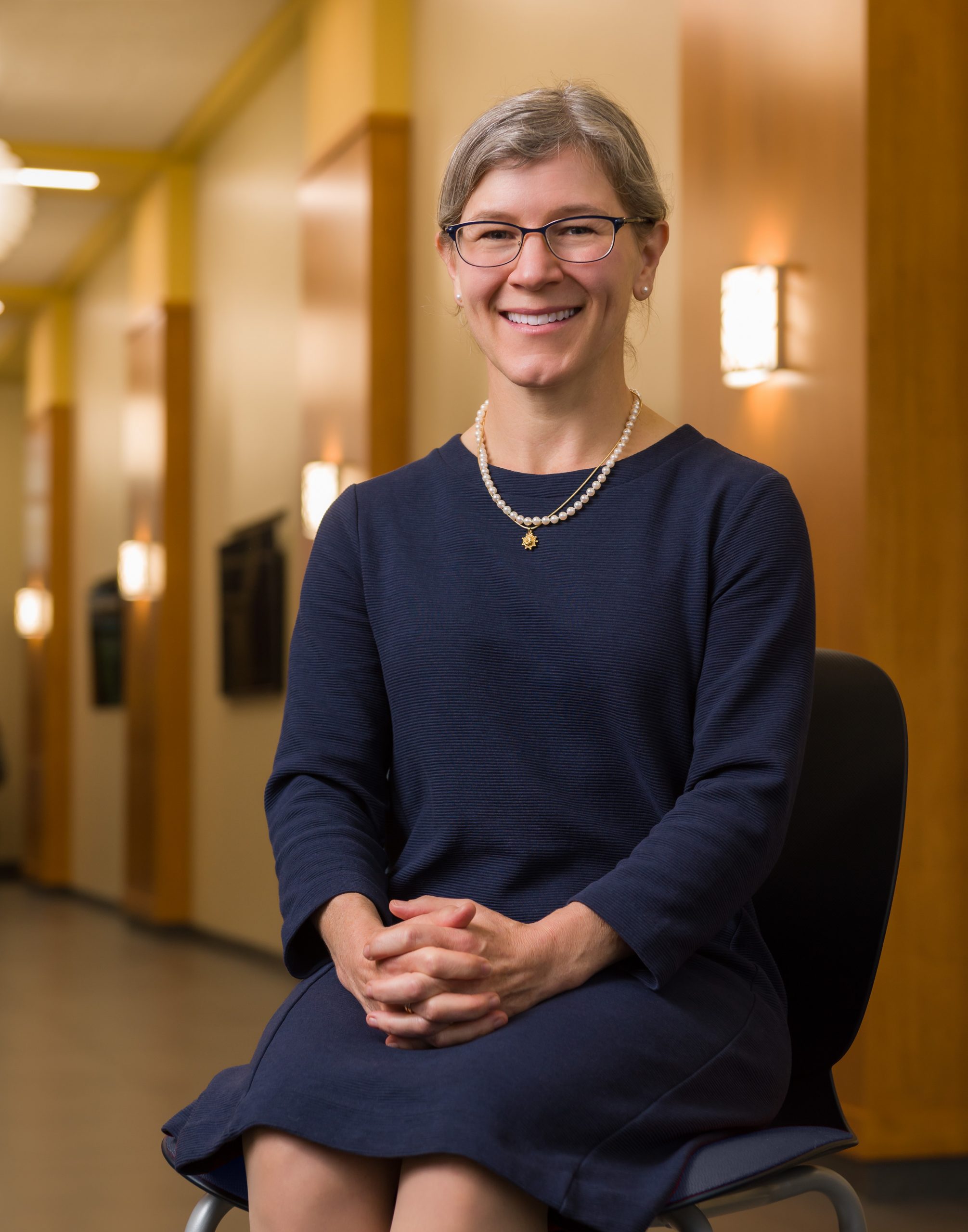It is my great privilege and pleasure to announce this year’s recipient of the Edgar M. Carlson Award for Distinguished Teaching. Created by the Gustavus Board of Trustees in 1971, the award recognizes “an established pattern of teaching excellence,” “innovative and effective teaching strategies,” and excellence in mentoring and advising. It is named in honor of the president who did so much to further the academic rigor and reputation of Gustavus during his two-and-a-half decades of extraordinary leadership from 1944 to 1968.
It goes without saying that at a college distinguished by so many talented, dedicated, and life-changing professors, the selection process for this award is never easy. Indeed, reading the various nominating statements is an experience at once uplifting and humbling.
Students describe this year’s recipient as an “accessible,” “friendly,” “extremely patient,” and “creative” professor who “brings . . . passion [for their subject matter] to every class.” That passion, combined with what one student describes as the professor’s “high spirits and attention-grabbing technique,” keeps students interested in and engaged with the course work. As one nominator observes, “I have never seen so much excitement among students in a lab.”
Even as she excites student interest in her field, this professor also expects and fosters much more than that. Students report that (in their words) she “encourages . . . attention to detail” and “keep[ing] up to date on the latest research”; “she wants every single one of us to learn and be amazed by what we are learning.” Through innovative and challenging assignments, she incorporates mock National Science Foundation grant proposal writing and presentations, as well as independent research projects, into her teaching, experiences whose profound impact and lasting benefits students readily attest: “I had to understand the material more deeply than I would have had to if I was performing an experiment that was created by someone else. . . . By creating a curriculum that allows for independent research, [this professor] has allowed me to grow as a scientist in ways that would not be possible in a typical undergraduate laboratory course.”
As another crucial part of that growth, and in perfect keeping with the Gustavus Mission Statement, this professor exposes students to the ethical issues raised by different areas of scientific research. Even more impressive, she does so in a classroom environment in which, as one nominator put it, such “controversial topics [are] discussed professionally.”
Nominators praise as well this faculty member’s commitment to interdisciplinary teaching and learning. This occurs both within her regular courses and in collaborative teaching across disciplinary boundaries less intrepid faculty might consider unbridgeable. Last spring, for example, this scientist collaborated with a classicist colleague on a fascinating and innovative new course exploring “the science, history, and cultural discourses” of human reproduction in the ancient and modern worlds, a course that built on the Fall 2017 Nobel Conference at Gustavus on Reproductive Technologies.
I am of course talking about our esteemed colleague and Professor of Biology, Dr. Margaret Bloch Qazi, this year’s recipient of the Carlson Award for Distinguished Teaching.
Professor Qazi earned her BA with honors in Biology at Wellesley College and her PhD in Biology (with an emphasis in Behavioral Ecology) at Tufts University. A postdoc followed at Cornell University, after which she joined the Gustavus Biology Department in 2003. Since then she has taught many different courses, whose topics have included Entomology, Invertebrate Zoology, Developmental Biology, reproduction, and “Bugs, Sex, and Rock & Roll” (for which the music video must be amazing). She has published numerous papers, some with student co-authors, growing out of her research into female sperm storage in animals, for which work she relies on that heroic research subject, the fruit fly.
Margaret, you are held in the highest regard by Gustavus faculty, staff, administrators, and students as a tireless and effective advocate of diversity, science, Biology, and innovative teaching and learning on our campus. And as this award signifies, your teaching excellence has profoundly impacted Gustavus students. I can think of no more wonderful testament to that impact than the student who noted your ability to demonstrate “how complex and beautiful biology can be,” and then concluded: “She taught me how to look at biological systems with new eyes, and ultimately this new outlook is why I love biology.” Congratulations!
Presented by Gregory Kaster
Professor of History
2018 Recipient of the Edgar M. Carlson Award

Leave a Reply